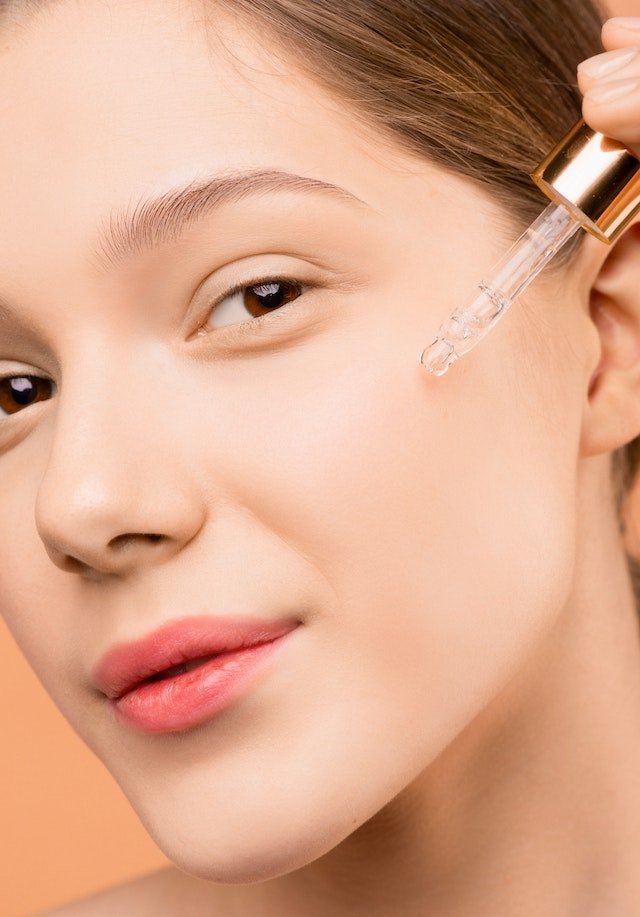Which aloe vera moisturizing cream is best for skin?
Aloe vera is one of the key constituents in aloe vera moisturizing cream, a skincare item. Aloe vera can moisturize, calm, and nourish the skin, among its many other skin-friendly properties. Aloe vera moisturizing lotions can be applied on various skin types, including dry, sensitive, and oily skin.
By assisting in the skin’s ability to retain moisture, aloe vera moisturizing lotion helps hydrate the skin. Natural humectants in aloe vera can draw in and hold onto moisture, making it useful in moisturizing creams.
Moreover, aloe vera possesses anti-inflammatory qualities that can aid in calming and soothing irritated or inflamed skin.
Those with sensitive skin or those suffering from skin disorders like eczema or acne may find this helpful.
Pros and cons of using aloe vera moisturizing cream
Pros of using aloe vera moisturizing cream:
Hydration: Aloe vera is known for its hydrating properties, and using aloe vera moisturizing cream can help to hydrate the skin, making it look and feel soft, smooth, and supple.
Soothing: Aloe vera has anti-inflammatory properties, which can help to soothe and calm irritated or inflamed skin. This can be especially beneficial for people with sensitive skin or conditions like eczema or psoriasis.
Nourishing: Aloe vera contains vitamins and minerals that can nourish and revitalize skin aging, helping to promote healthy skin.
Lightweight: Aloe vera moisturizing cream is often lightweight and non-greasy, making it suitable for all skin types, including oily ones.
Natural: Aloe vera is a natural ingredient, and aloe vera moisturizing creams are often formulated with other natural ingredients, making them a safer and healthier option for skincare.
Cons of using aloe vera moisturizing cream:
Allergic reactions: While aloe vera is generally safe for most people, some may be allergic. It’s important to patch-test the product before using it on your face or body, especially if you have sensitive skin.
Limited benefits: While aloe vera moisturizing cream can provide hydration and nourishment, it may not be enough to address more severe skin issues like acne or wrinkles.
Short shelf life: Aloe vera moisturizing cream may have a shorter shelf life than other skincare products, as aloe vera can degrade and lose effectiveness.
Cost: Aloe vera moisturizing creams can be more expensive than other moisturizers, especially if formulated with high-quality, natural ingredients.
Things to consider before buying aloevera moisturizing cream
Before buying aloe vera moisturizing cream, here are some things to consider:
Skin type: Consider your skin type before purchasing an aloe vera moisturizing cream. If you have oily skin, look for a lightweight formula, while those with dry skin may benefit from a more richly hydrating formula.
Ingredients: Look for an aloe vera moisturizing cream that is formulated with high-quality, natural ingredients and free from harmful chemicals like parabens, sulfates, and phthalates. It’s also important to look for a product with a high aloe vera concentration to ensure maximum benefits.
Purpose: Determine what you want to achieve with the moisturizing cream. Do you want to hydrate, soothe, or nourish your skin? Knowing your purpose can help you select the right product.
Brand reputation: Consider the brand’s reputation and reviews from other users. Look for a brand with a good track record in producing effective, high-quality skincare products.
Price: Aloe vera moisturizing creams can range in price, so determine your budget before purchasing. Keep in mind that higher-priced products may contain more natural and organic ingredients.
Packaging: Consider the packaging of the product. Aloe vera is a sensitive ingredient and can lose effectiveness if exposed to air or light for an extended period. Look for a product packaged in an opaque, airtight container to ensure maximum effectiveness.
Health benefits of aloe vera moisturizing cream
Wound healing: Aloe vera has been shown to have wound-healing properties, helping to promote healing and reduce scarring. Using aloe vera moisturizing cream on cuts, burns, or other skin injuries may speed up the healing process and reduce the risk of scarring.
Anti-ageing: Aloe vera contains antioxidants that can help to protect the skin from damage caused by free radicals, which can contribute to signs of ageing like wrinkles and fine lines. Regular use of aloe vera moisturizing cream may promote healthy, youthful-looking skin.
Acne prevention: Aloe vera has antibacterial properties that can help to prevent acne by killing the bacteria that cause breakouts. Using aloe vera moisturizing cream may help to keep the skin clean and prevent the buildup of bacteria that can lead to acne.
Brightening: Aloe vera has natural skin-brightening properties, making it a great ingredient for reducing the appearance of dark spots, hyperpigmentation, and uneven skin tone. Regular use of aloe vera moisturizing cream may improve skin tone and overall appearance.
Sunburn relief: Aloe vera has cooling and soothing properties, making it a popular natural remedy. Aloe vera moisturizing cream after sun exposure can help reduce inflammation, soothe pain, and promote healing.
Scalp health: Aloe vera has been shown to benefit scalp health, helping to soothe dry, itchy, or irritated scalps. Aloe vera moisturizing cream on the scalp may help promote healthy hair growth and reduce dandruff.
How do you use aloe vera moisturizer cream?
Here are some general guidelines for how to use aloe vera moisturizer cream:
Cleanse your face: Before applying any moisturizer, ensure your face is clean and free of dirt, oil, and makeup. Use a gentle cleanser to wash your face, and pat dry with a soft towel.
Apply a small amount: Using clean hands or a spatula, scoop out a small amount of aloe vera moisturizer cream and apply it to your face. Start with a pea-sized amount, and add more if necessary.
Massage into your skin: Use your fingertips to massage the moisturizer, using circular motions gently. Pay extra attention to drier areas, such as your cheeks and forehead.
Allow time to absorb: Give the moisturizer a few minutes to fully absorb into your skin before applying other products, such as sunscreen or makeup.
Use as needed: Depending on your skin type and your climate, you may need to apply aloe vera moisturizer cream once or twice a day. If your skin feels dry or tight throughout the day, reapply.
FAQs
What are the side effects of aloe vera moisturizing cream on the face?
Skin sensitivity: Aloe vera can increase skin sensitivity to sunlight, which may lead to sunburn or other skin damage. If you use aloe vera moisturizing cream during the day, be sure to also use a broad-spectrum sunscreen with an SPF of at least 30 to protect your skin.
Interference with medication: Aloe vera can interfere with the absorption of certain medications when taken orally, but this is not typically a concern when using aloe vera moisturizing cream topically.
Acne breakouts: Although aloe vera has antibacterial properties that can help to prevent acne, some people may experience acne breakouts when using aloe vera moisturizing cream. This is more likely to occur in people with oily or acne-prone skin.
Dryness: In rare cases, using aloe vera moisturizing cream may contribute to skin dryness or dehydration. This is more likely to occur if you have extremely dry skin or use too much of the product.
Can I use aloe vera moisturizer cream for acne?
Because aloe vera moisturizer cream has anti-inflammatory and antibacterial qualities, it can be used on skin that is prone to acne.
Salicylic acid, which is included in aloe vera and aids in skin exfoliation and pore unclogging, also provides a cooling impact that can assist in calming inflamed skin.
It’s crucial to select an aloe vera moisturizer cream for acne that is non-comedogenic, meaning it won’t clog pores or cause breakouts.
To make sure that a moisturizer won’t aggravate your acne, look for the terms “oil-free” or “non-comedogenic.”
After cleansing your face, you can use a tiny amount of aloe vera moisturizer cream as part of your regular skincare regimen.
If you have persistent or severe acne, it’s also a good idea to see a dermatologist, as they may be able to suggest other procedures or drugs that are more efficient.
Can I use aloe vera gel as a moisturizer every day?
Yes, you can use aloe vera gel as a moisturizer daily, as long as you are not allergic to it and have no negative reactions. Aloe vera gel has naturally hydrating properties that can help to soothe and moisturize the skin. It is also gentle and non-greasy, making it a good option for all skin types, including sensitive skin.
Make sure to choose pure, high-quality aloe vera gel free of any additional perfumes, colours, or other chemicals that can irritate your skin while using aloe vera gel as a moisturizer.
Is aloe vera moisturizing cream good for tattoos?
Aloe vera moisturizing cream can help the skin heal by soothing and hydrating it, which is beneficial for tattoos.
Aloe vera’s anti-inflammatory and moisturizing characteristics can assist in keeping the skin hydrated and avoiding dryness and itching while reducing redness, swelling, and irritation around the tattooed region.
When choosing a moisturizer for your tattoo, it’s important to choose a product that is gentle and non-irritating and does not contain any ingredients that may cause an allergic reaction or irritation. Look for a moisturizer that is specifically formulated for use on tattoos and contains high-quality natural ingredients.
Share this content:














Post Comment